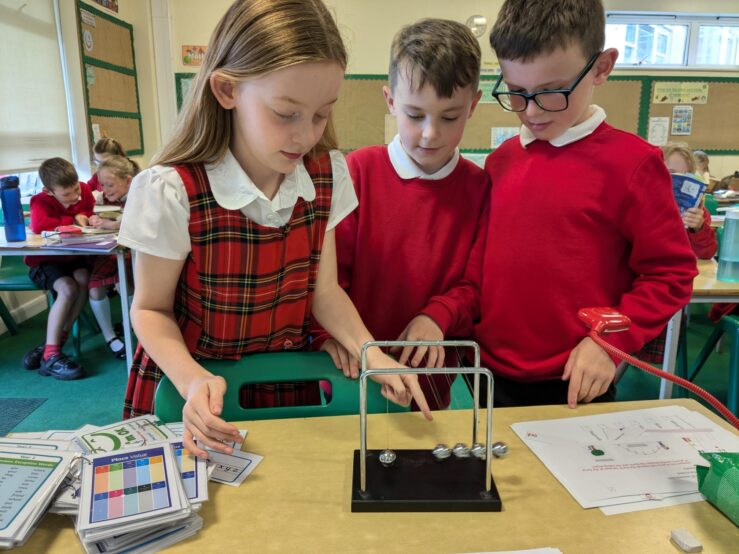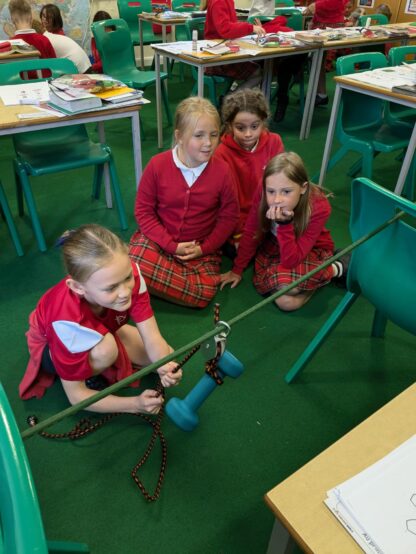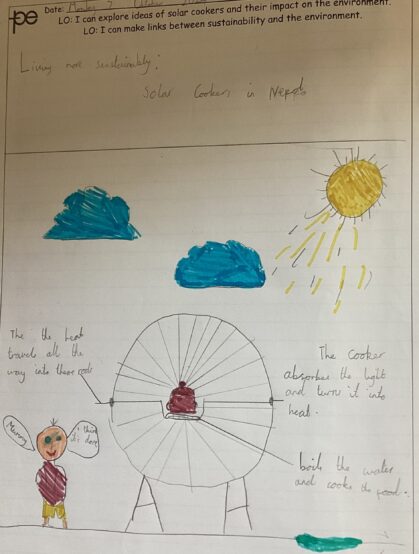Science
“The important thing is to never stop questioning.”
Albert Einstein
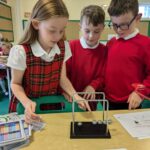
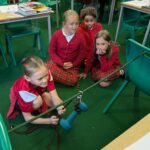
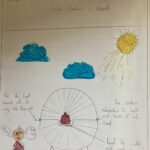
When teaching science at Parc Eglos, we intend to provide a curriculum which not only caters for the needs and interest of all individuals but also celebrates the endeavours made by scientists from both Cornwall and across the globe. We intend to foster and develop skills to both question and understand the natural world; that both the support and disagreement of ideas are of equal value when underpinned by evidence, and that both careful analysis and considered reflection are required to move forward.
We aim to prepare children to be successful adults and an aid to our collective future through appreciating underlying relationships and potential consequences to both action and inaction within the natural world.
By underpinning each year group’s learning with the same fundamental ‘Big Idea’ for each topic, children can strengthen and develop their understanding regardless of their academic ability. Once grasped, children are required to extend their knowledge out from the ‘Big Idea’ towards Mastery: to observe it, explain it or hypothesise it functioning within new situations; the causes and effects.
Children will be taught to use scientific vocabulary in order to explain and understand with precision. They will develop their scientific reasoning and logic through carefully structured lessons which include discussion and collaboration as integral to learning. We encourage attention to detail, resourcefulness and critical thinking – and that resilience and struggle is often a necessary step in our universal understanding.
The aim is that science causes children to take more notice of the world around them and that this in turn causes an endless curiosity. Children will leave Parc Eglos instilled with confident, passionate and enthusiastic scientific (questioning) minds – even if they are quite unaware that this is so.
Documents
Please click here to see our Science Intent, Implementation and Impact Statement (curriculum statement).

